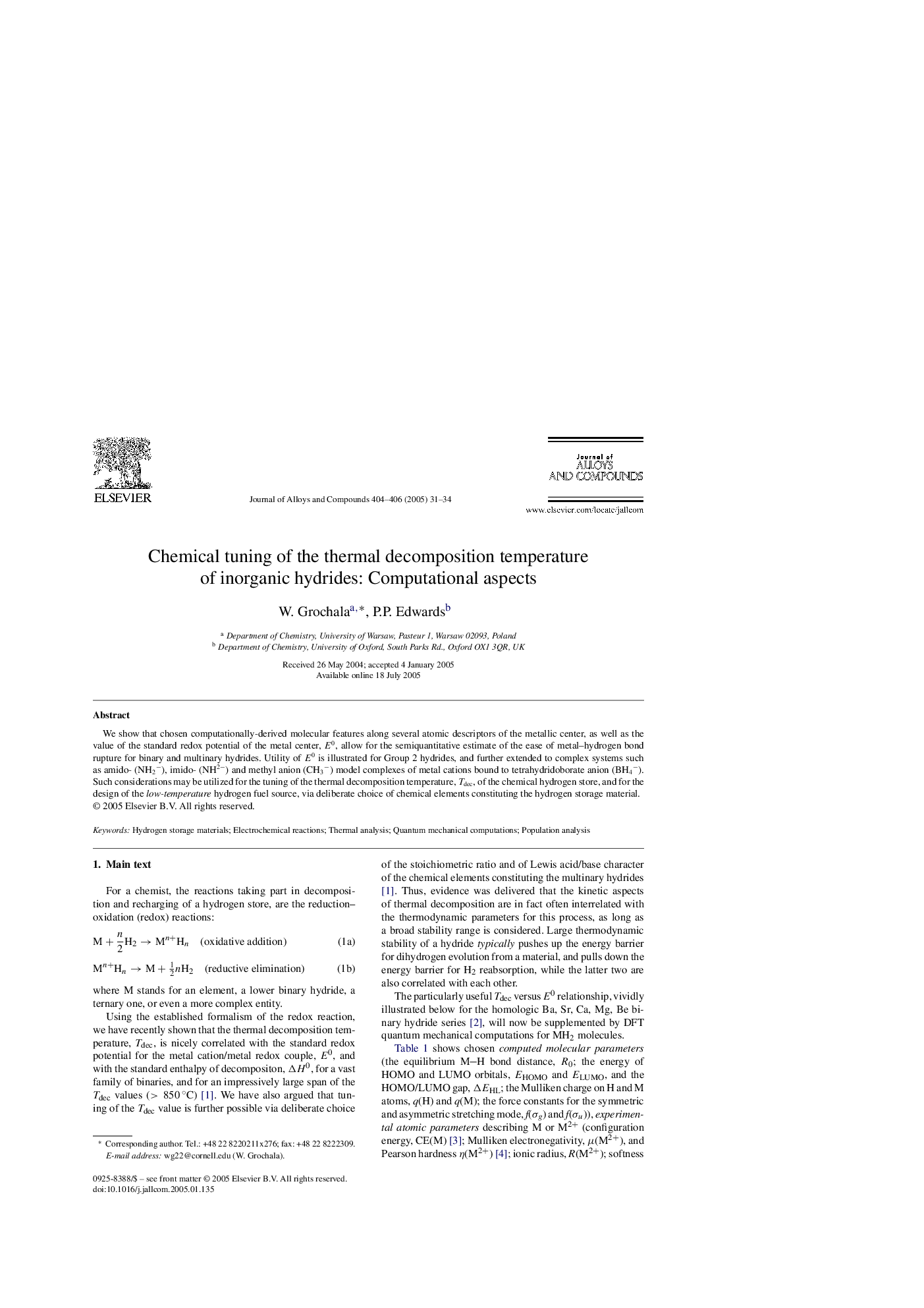| Article ID | Journal | Published Year | Pages | File Type |
|---|---|---|---|---|
| 9803156 | Journal of Alloys and Compounds | 2005 | 4 Pages |
Abstract
We show that chosen computationally-derived molecular features along several atomic descriptors of the metallic center, as well as the value of the standard redox potential of the metal center, E0, allow for the semiquantitative estimate of the ease of metal-hydrogen bond rupture for binary and multinary hydrides. Utility of E0 is illustrated for Group 2 hydrides, and further extended to complex systems such as amido- (NH2â), imido- (NH2â) and methyl anion (CH3â) model complexes of metal cations bound to tetrahydridoborate anion (BH4â). Such considerations may be utilized for the tuning of the thermal decomposition temperature, Tdec, of the chemical hydrogen store, and for the design of the l ow-temperature hydrogen fuel source, via deliberate choice of chemical elements constituting the hydrogen storage material.
Related Topics
Physical Sciences and Engineering
Materials Science
Metals and Alloys
Authors
W. Grochala, P.P. Edwards,
